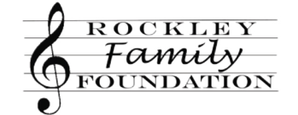As camps end and after school activities begin, it is the perfect time to introduce children to the piano. There are many benefits to learning the piano, but most importantly, it is a fun activity that builds great habits. Like starting any new activity, it can be challenging and frustrating at first. Below are some piano tips for beginners that may help reduce frustration and increase enjoyment.
1. Start Slow
Learning the notes of any particular scale or song is much more important than learning the tempo, or speed, of any piece of music. This may sound obvious, but it can be easy to forget as your skills grow. It can be overwhelming to hear the tempo on any piece of music when you set your metronome, but there’s no need to learn at that speed. First, you just need to know where to place hands to play the notes. Take your time and play the correct notes in order and repeat until you have played the measure or phrase correctly with no errors. With that baseline of correct notes, phrasing and rhythm, you can begin to speed it up to eventually match the music’s tempo. Starting slow is one of the most important tips that beginner piano players can take to heart.
2. Break it down
As you start your journey with the piano, learning the major scales seems like a completable task. There are only eight notes in each scale, and beginning at C, there are only eight white keys that you need to work with. However, as you move past the building blocks of scales and into longer musical challenges, like piano pieces for beginners, it can be hard to string along four measures or eight measures of music. As you begin to dive into these piano pieces, remember again to slow it down to a comfortable tempo. It’s also important to “chunk” out the piece. Take the first two or four measures of any piano piece and only practice those at first. Once you have learned that small piece correctly, move on to the next group of measures and repeat the process. Breaking this piece of music down, or “chunking,” reduces frustration and makes sure you that you see progress during each practice section.
3. Practice at a piano regularly
There truly is no substitute for regular practice. Beginning the piano is an exciting new activity that can also fade away quickly if there isn’t consistent practice to go along with the initial discovery. The most enjoyable way for beginners to learn piano is practicing at a full-size piano or keyboard. From grand pianos to electronic keyboards, an instrument with all 88 keys will help familiarize beginners with moving their hands around the full keyboard and learn how to finger correctly with their left and right hands. Of course, simply obtaining a piano is not enough; practicing at your new piano regularly is the best way to gain new skills and get better.
Find out about events near you to purchase a keyboard or piano to start learning this extremely rewarding hobby! Learn more about the Rockley Family Foundation and how we further music education and enjoyment for all.
